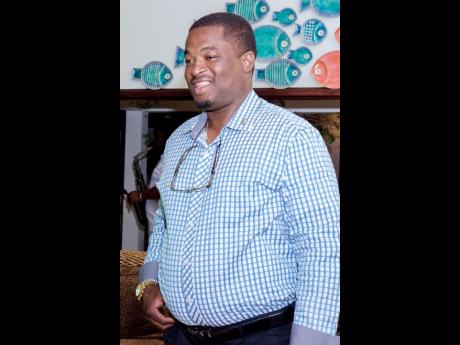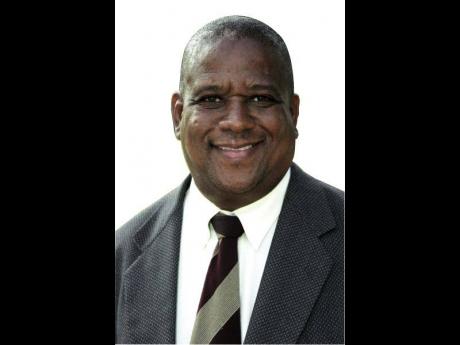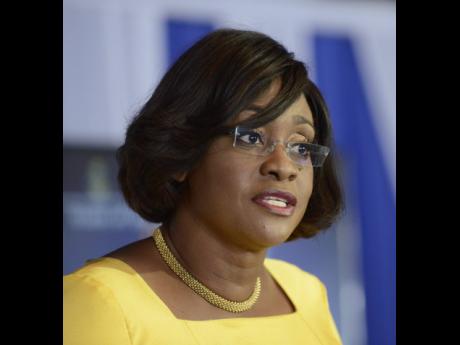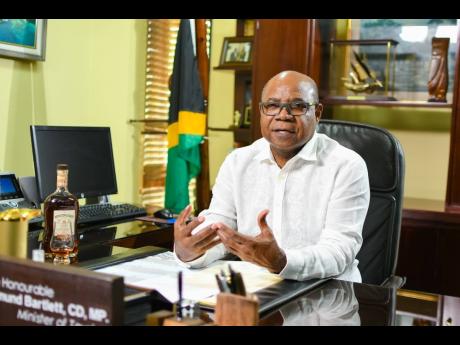Committees in hibernation - Inertia grips gov’t-chaired parliamentary panels despite shift promised by Holness
Last year, Prime Minister Andrew Holness argued, amid a fierce public outcry, that his administration’s reversal of a decade-old transparency practice of having Opposition members chair all key parliamentary oversight committees was to shake the legislature from its slumber.
However, after four months, hardly any change can be discerned as three of the four committees back under government stewardship did not hold a single meeting before the 2020-2021 parliamentary year ended last Tuesday.
Further, it appears an instruction from the prime minister for annual reports to be referred to the committees was not even carried out.
The three committees are the Internal and External Affairs Committee (IEAC), whose purpose is to examine national security, justice and foreign policy issues; the Economy and Production Committee (EPC); and Human Resources and Social Development Committee (HRSDC).
Under the Standing Orders, Parliament’s rulebook, the EPC, HRSDC, along with the Infrastructure and Physical Development Committee (IPDC), are mandated to enquire into policy documents and statements from ministries and government agencies relevant to their designation and terms of reference.
Those three may also examine legislative proposals and make recommendations to the Cabinet; receive submissions from citizens; and organise meetings between citizens, community groups, sectoral organisations and government representatives “to seek such information on their activities as the public interest may demand”.
Thirty-nine MPs comprise the membership of the four committees, which are located in the elected chamber.
The EPC is chaired by Juliet Holness, the member of parliament for St Andrew East Rural and deputy speaker of the House of Representatives, while Franklin Witter, the representative for St Elizabeth South Eastern, leads the IEAC. Calls and messages to both were not answered or returned up to press time.
Heroy Clarke chairs two of the four committees – the infrastructure committee, whose only meeting was on November 17, 2020 – and the HRSDC.
He argued that his committees had nothing to do because the House did not refer any matters for consideration.
“Remember, it is not the committee who finds something to deal with. It is Parliament that sends down the matter to us to be dealt with. Once there’s a matter to be dealt with, we’ll deal with it,” he said.
Clarke, now in his second term as MP for St James Central, revealed that he did enquire of the House leadership for work.
“I would have done so,” he said, adding that “If there’s no work for the committee to do, then there’s nothing to do … . I will just have to wait a little bit more.”
Oversight functions
In 2007, the Jamaica Labour Party administration led by then Prime Minister Bruce Golding, in a quest to improve Parliament’s oversight functions, allowed the Opposition to name chairpersons for all key oversight committees of Parliament.
The Opposition had already chaired the Public Accounts Committee (PAC), which mainly examines reports from the auditor general and financial statements of public bodies, and the Public Administration and Appropriations Committee (PAAC), which looks into how the yearly budgets are being implemented by government entities.
Both committees – untouched by last year’s changes – were crucial to the uncovering of a raft of financial and human resource-related irregularities at Petrojam, the State’s oil refinery, and the Caribbean Maritime University, leading to the downfall of two Cabinet ministers.
Fresh from its historic general election win on September 3 in which the Jamaica Labour Party gained control of 49 of the House’s 63 seats, the administration overturned the Golding practice.
That move handed a victory to senior party figures like Everald Warmington, who had long campaigned against the move, insisting that the rules were never amended to formalise the process.
In his statements on the controversial issue in Parliament on September 29 last year, Holness also admitted that with more MPs on his side, the Parliament could get more work done, arguing that under Opposition chairmanship, the committees were not doing enough.
“Oversight is not merely, or only, or singularly on the fiduciary matters,” the prime minister said, contending that the Opposition was only interested in the PAC and PAAC, where they could highlight issues unfavourable to Government while non-financial-related issues were being ignored, hampering the administration’s agenda.
“Oversight is not only the purview and the responsibility of Opposition members. That is the falsehood in their argument,” he added, noting that the Golding practice was a “noble gesture”.
Both Holness and Edmund Bartlett, the leader of government business, maintained that under Opposition leadership, the four committees did little work over the period 2016-2020, although when the data for the previous four years is considered, the situation was hardly different.
However, Holness was clear in one particular instruction regarding annual reports submitted by the public bodies.
“What I intend to do, and I’ve already given direction to the House leader, is that every single report from a statutory body that comes here must be assigned to the relevant sessional committee for that sessional committee to review it,” he said.
“They will have work to do and I don’t intend to have 49 members, take off the executive, and have this massive backbench sitting down in Parliament banging on desks,” he said.
“All of them will have work to do. All committees will be functional,” Holness said to desk-banging applause from his government colleagues and to the frustration of the reduced Opposition now led by Mark Golding.
Policy issues
Asked why the committees did nothing over the four-month period, House Leader Bartlett clung to the argument that the committees could only have met if the full Parliament had referred policy issues to them or through motion debates and passed.
“The Parliament has to offer to the committees reports from various MDAs (ministries, departments and agencies) for them to consider. And if no such report had come during that session, therefore, the committees couldn’t meet.”
“In the four months, there have not been motions to enable that reference and consequently those committees have not met,” he explained.
Bartlett, who is also the minister of tourism, may not have remembered the prime minister’s specific instruction on what was to be done with annual reports from public bodies.
A Sunday Gleaner review revealed that since the September 29 instruction of the prime minister, not only have three of the committees not been functional, but that dozens of annual reports tabled were not even referred as anticipated.
Fifty annual reports were tabled across 10 meetings held by the House between September 29, 2020 and February 5, 2021, none of which were sent to the committees now under question – Economy and Production, Human Resources and Social Development, Internal and External Affairs and the Infrastructure and Physical Development committees.
Ten reports were tabled on September 29, the very day Holness gave his instruction.
Some of the annual reports – some as recent as 2019/2020 – came from the National Health Fund, the National Housing Trust, the Department of Correctional Services, the University of Technology, Planning Institute of Jamaica, Water Resources Authority, Land Divestment, Financial Investigation Division, Tourism Enhancement Fund, Rapporteur on Human Trafficking and the Management Institute for National Development.
The Opposition has not raised any public concerns.
Anthony Hylton, the leader of Opposition business, who was among the chorus of voices in dissent of the rollback of the Golding practice, said Bartlett’s interpretation of the Standing Orders was too restrictive.
“The members can agree on matters to come before them. It’s one of the actions they took [in the last term] to limit the scope of the chairman and the work of the committee to insist that only matters coming up from the Parliament could be heard and that was narrowing.
“There’s certainly nothing efficient about this operation and causes one to wonder what really is the reason … . This is a matter we will never go silent on,” he said.
Following the reversal last September, several leading civil society and anti-corruption voices, including the Private Sector Organisation of Jamaica, National Integrity Action and the Jamaica Accountability Meter Portal (JAMP), publicly urged the Holness administration to reconsider but to no avail.
With the Sunday Gleaner data, Jeanette Calder, JAMP executive director, said Holness’ sincerity is under question.
“What would be the roadblock to having the sessional committees meet to ensure that there would be no hindrance to the roll-out of Government programmes? What would prevent the fulfilment of the PM’s intent to assign backbenchers to review the many annual reports that year after year get no attention?” the advocate questioned.
“In a time when greater oversight and efficiency is needed to extract all value from every dollar, the question is, if oversight is not improved now will it ever?”
The PAC held six meetings over the period while the PAAC did one better.
Several joint select committees, which comprise MPs and senators, were established to consider a range of issues, including the national identification system and sexual harassment.
Key oversight sessional committees that did not meet between September 29, 2020 and February 16, 2021
Internal and External Affairs
Franklin Witter
Donovan Williams
Dave Brown
Kerensia Morrison
Heroy Clarke
Morland Wilson
Fitz Jackson
Lisa Hanna
Human Resources and Social Development
Heroy Clarke – Chair
Krystal Lee
Ann-Marie Vaz
Tova Hamilton
George Wright
Dr Michelle Charles
Phillip Henriques
Rhoda Crawford
Dr Morais Guy
Dr Angela Brown Burke
Infrastructure and Physical Development*
Heroy Clarke – Chair
George Wright
James Robertson
Daniel Lawrence
Delroy Slowley
Kystal Lee
Franklin Witter
Dwight Sibblies
Dave Brown
Mikael Phillips
Natalie Neita
Julian Robinson
*Committee met once – November 17, 2020
Economy and Production
Juliet Holness – Chair
Dave Brown
Phillip Henriques
Tova Hamilton
Morland Wilson
Mike Henry
Daniel Lawrence
Anthony Hylton
Hugh Graham




